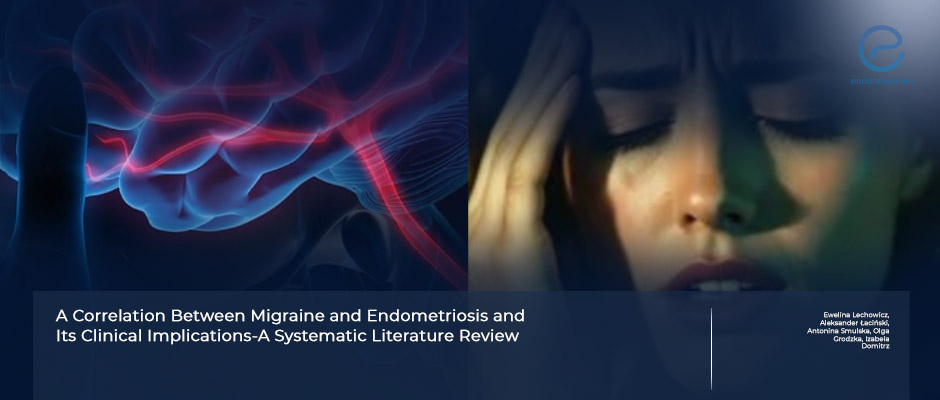Migraine and Endometriosis: Exploring a Comorbid Link
Jun 20, 2025
Migraine May Be More Than a Headache for Women with Endometriosis
Key Points
Highlights:
- Migraine—especially menstrual-related migraine, chronic migraine, and migraine with aura—is commonly observed in women with endometriosis.
- A shared mechanism involving central sensitivity syndrome, hormonal fluctuations, and inflammation may explain the overlap.
- Endometriosis-related comorbidities like migraine may worsen overall pain burden and quality of life.
Importance:
- This review underscores the need to recognize migraine as a potential comorbidity in women with endometriosis, which could influence diagnosis, treatment, and patient education.
- Understanding shared pathways could lead to more holistic and personalized treatment strategies.
What's done here:
- Dr. Lechowicz and colleagues performed a systematic narrative review using PubMed and MEDLINE.
- The aim was to assess existing evidence for a comorbid link between endometriosis and migraine, with focus on pathophysiology, symptom severity, and subtypes of migraine.
Key Results:
- 28 studies were included in the final analysis.
- Migraine was one of the most commonly reported comorbidities among women with self-reported endometriosis.
- Prevalence varied widely, from 21.7% to 75% across studies.
- Chronic migraine, menstrual migraine, and migraine with aura were particularly associated with endometriosis.
- Some studies also suggested more intense pain experiences in women suffering from both conditions.
- Evidence supports neuroinflammatory, hormonal, and genetic overlap between the two disorders.
From the Editor-in-Chief – EndoNews
"The intersection of migraine and endometriosis is no longer speculative—it’s increasingly supported by genetic, molecular, and epidemiological evidence. This comprehensive review highlights a critical, often overlooked comorbidity that may amplify suffering and complicate care. Clinicians treating women with endometriosis should screen for migraine, particularly menstrual and chronic forms, and vice versa. Understanding the shared neuroinflammatory and genetic underpinnings of these disorders could unlock better-targeted, multidisciplinary management strategies. As we deepen our grasp of central sensitization syndromes, this work urges us to think beyond the pelvis and address pain as a systemic, interconnected experience."
Lay Summary
Migraine is one of the leading causes of disability worldwide and disproportionately affects women of reproductive age—many of whom also suffer from endometriosis. While the two conditions may appear unrelated, emerging research suggests they could share common biological and genetic pathways.
In a recent review published in Journal of Clinical Medicine, Dr. Lechowicz and colleagues from the University of Warsaw investigated the possible connection between migraine and endometriosis. By analyzing 28 published studies from PubMed and Embase, the team explored the prevalence of migraine among women with endometriosis, the types of migraines reported, and the potential shared mechanisms behind the two diseases.
Their findings indicate that migraine—particularly chronic migraine, menstrual migraine, and migraine with aura—is more common in women with endometriosis than in the general population. The review also highlights overlapping factors such as central sensitization, elevated inflammatory markers, and genetic predispositions that may explain this association. In fact, at least three gene polymorphisms have been found to be shared by both conditions.
Although the data is still evolving, the authors emphasize the importance of recognizing migraine as a potential comorbidity in women with endometriosis. Doing so may improve diagnosis and treatment strategies for both disorders, particularly in patients experiencing complex pain syndromes.
Research Source: https://pubmed.ncbi.nlm.nih.gov/40283573/
migraine headache menstruation uterus primary headache disorders aura episodic headache blurred vision endometriosis.

